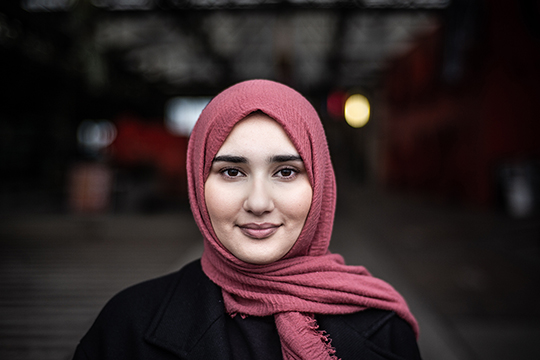What happens if you are undocumented? Do you get no medical care at all?
“In the Netherlands, you cannot get health insurance if you do not have a valid residence permit. There are organisations, such as Doctors of the World and Kruispost, which do offer primary GP care to this group. A MEDIC council member working for Kruispost saw there was a lack of options to refer patients to other primary care practitioners, such as physiotherapists and dieticians. We decided to do something about it.”
Why physiotherapists and dieticians?
“We are talking about a vulnerable patient group, who often do not have a suitable place to sleep and cannot obtain healthy food or medication. In this situation, a pain in the lower back can develop into a chronic condition, while the prevalence of diabetes is also a major risk. Underdiagnosed chronic diseases are not only detrimental to the patients themselves, but also to the entire Dutch healthcare system. Unfortunately, visiting a physiotherapist or dietician is not an option in most cases. These people have to pay for everything themselves, if the care providers will see them at all.”
You decided it was time for action. What did you do?
“We recruited physiotherapists and dieticians who were willing to treat our patients voluntarily. We also contacted agencies that hold consultations for uninsurable patients. Our aim is to ensure that the doctors know who they can refer these people to. We want to ensure that patients are actually seen by a care provider. Doctors can now easily make a referral using a form on our website. We are currently cooperating with one physiotherapy practice and one dietician’s practice, where five of our patients are being helped and have already had several consultations.”
The first success stories! What challenges does this project face?
“It took one and a half years of phone calls and emails to finally find two practices who were willing to get on board. The dieticians and physiotherapists often responded positively, but everyone is always too busy and has difficultly fitting this work into their regular schedules, which of course I understand. That is why we have a flexible arrangement, whereby it’s also fine if a practitioner can only volunteer their services a few months of the year or one day a week. The biggest motivation should be to give something back to society. Additionally, beginning practitioners can see this as a way to gain experience with a vulnerable and often very grateful patient group.”
You have put a lot of time into this in the last one and half years. What is the reward for you?
“I will never forget the first time I referred a patient. I contacted him myself and he was so happy and grateful that finally someone was going to look into his complaints. That’s what does it for me: I want all patients to have access to the care they need. I get energised when I see that people are genuinely grateful and can finally get the help they have needed for so long. As a doctor, my aim is to be able to help everyone. I think every doctor wants this. I also want to continue doing voluntary work alongside my paid job. I will continue to work for MEDIC for the time being, so that I can launch more projects like this.”
What other projects are you currently working on?
“MEDIC was founded by doctors and medical students who want to improve sensitivity to diversity in Dutch healthcare. We mainly focus on Muslim patients. We notice various obstacles in practice, for example that doctors and patients do not always understand each other. Many of our projects therefore focus on providing information to medical professionals and patients. For example, our scientific committee is currently organising a workshop for healthcare providers about palliative care from the Islamic perspective.”
